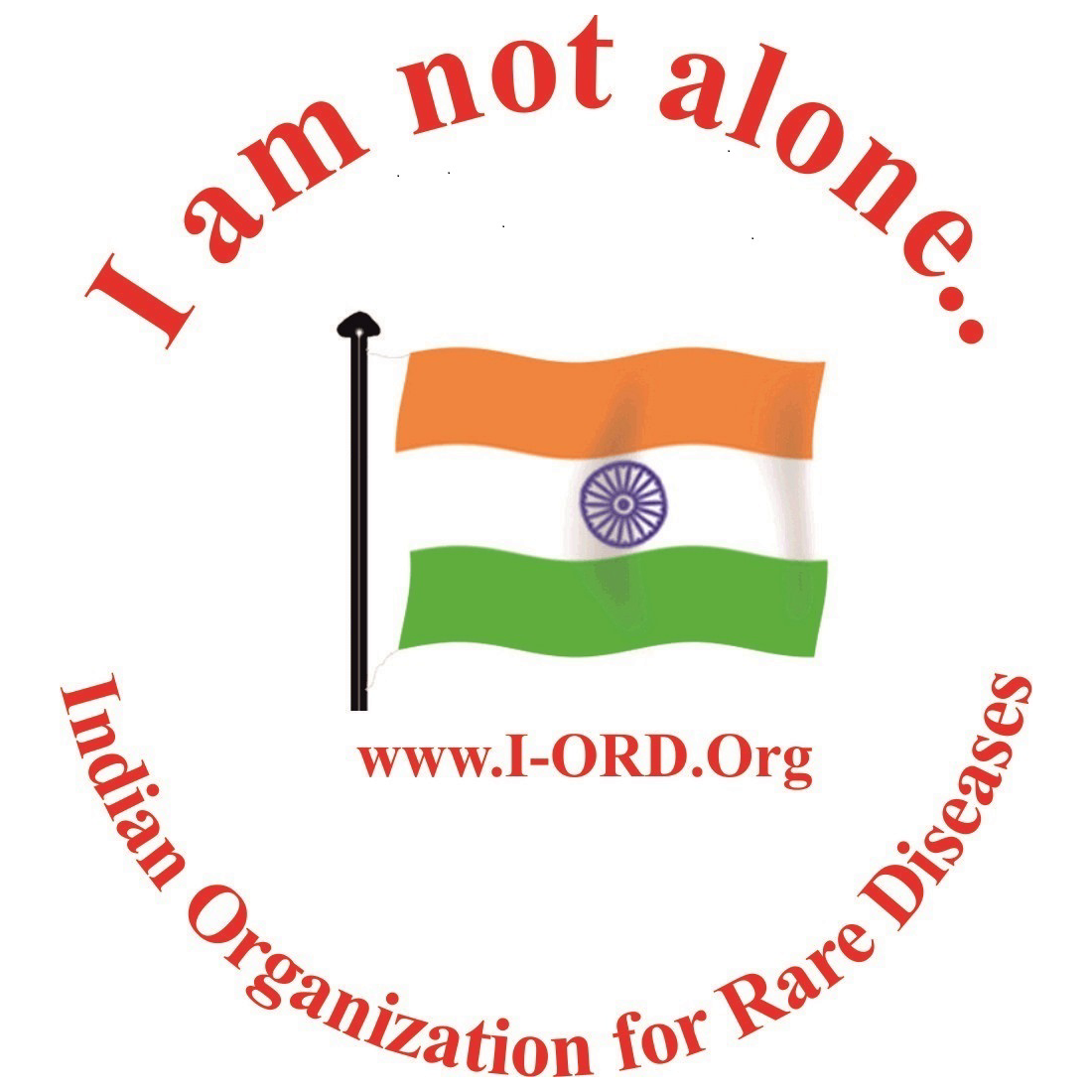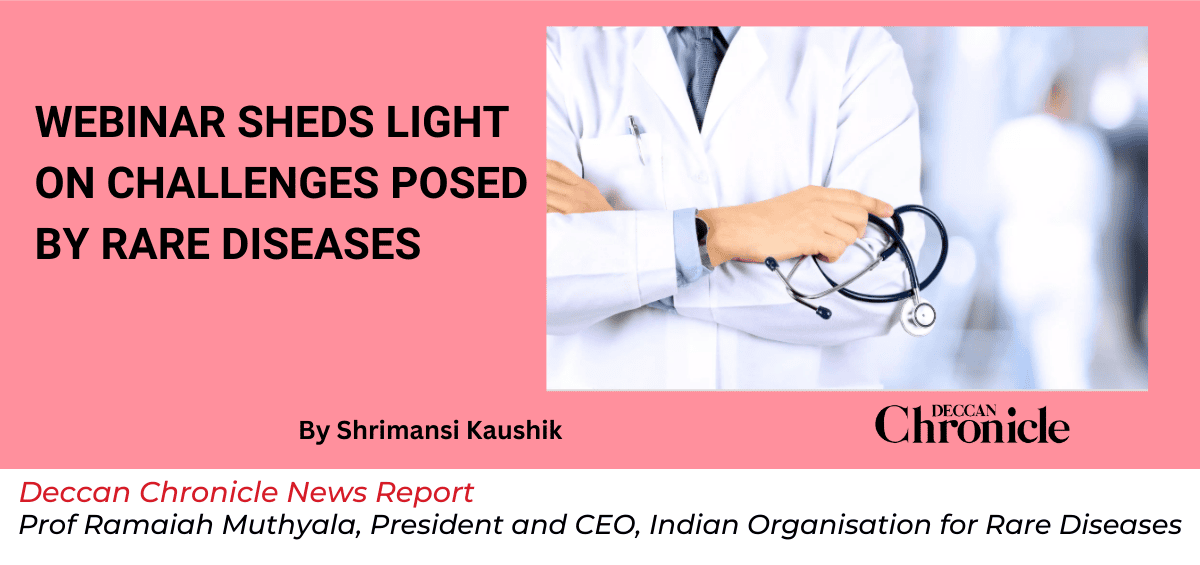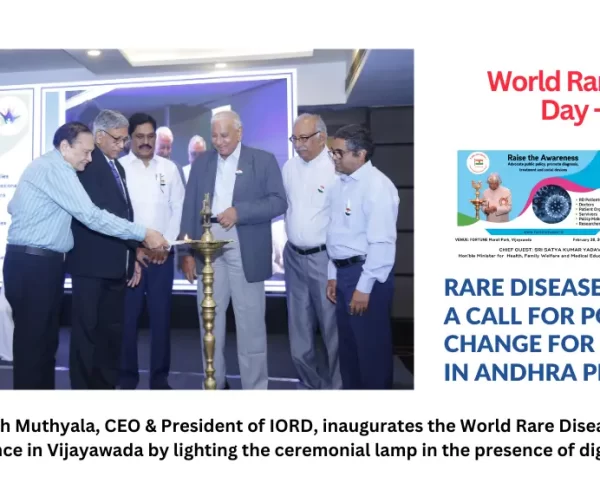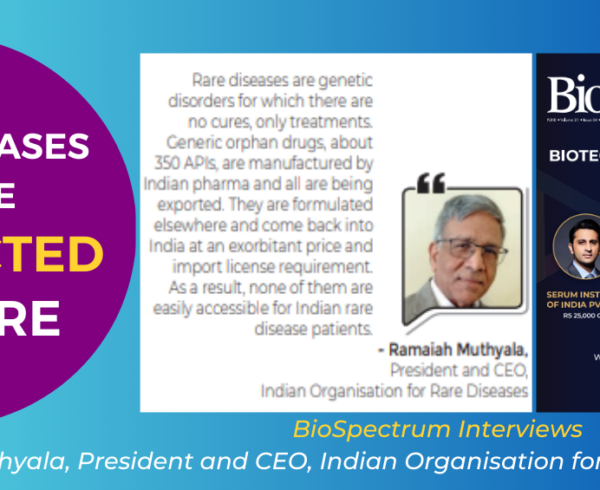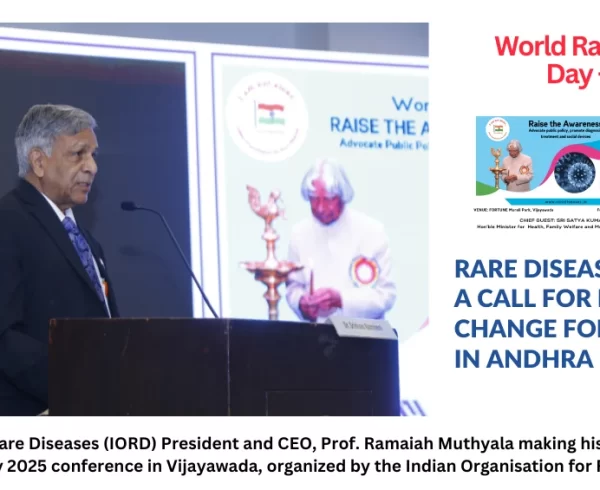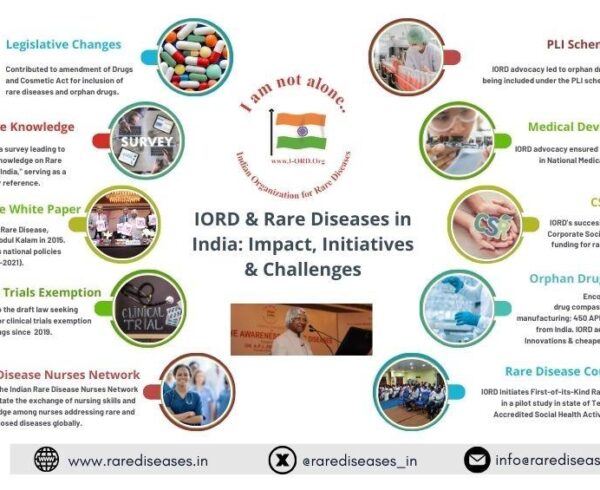Challenges Presented by Rare Diseases in India
Hyderabad: A webinar organised by the Federation of Asian Biotech Associations-US chapter highlighted the socio-economic and emotional toll on the 70 million Indians affected by rare diseases (RDs). It explored lessons from global practices, particularly the US. A session titled ‘The Global Burden of Rare Diseases: Issues and Challenges’ was addressed by Hyderabad-based Indian Organization for Rare Diseases founder Prof. Ramaiah Muthyala.
Prof. Muthyala compared India’s nascent RD ecosystem to the US, where the Orphan Drug Act of 1983 spurred advancements through incentives, leading to the approval of over 1,000 treatments. However, these therapies remain prohibitively expensive, such as Zolgensma for spinal muscular atrophy at $2.1 million per patient. In India, costs are further compounded by reliance on imports, with drugs like Trientine for Wilson’s disease costing ₹1.6 crore annually, unaffordable for most Indian families earning under $300 a month.
India faces critical gaps, including delayed diagnoses averaging 7 to 20 years and a fragmented infrastructure. Only 14,994 cases have been recorded in the Indian Council of medical Research’s national registry, far below the estimated burden. While the National Policy for Rare Diseases (2021) shows promise, only 48.7 per cent of resources for centres of excellence were utilised between 2021 and 2024.
Despite challenges, India’s manufacturing of 450 active pharmaceutical ingredients through initiatives like Make in India and the ₹15,000-crore Production Linked Incentive scheme offer hope to reduce costs and improve accessibility. The webinar brought together leading scientists, industry pioneers, and healthcare professionals to address the challenges of RDs in India. The discussions shed light on the critical gaps in treatment, research and patient care, while outlining a collective vision for the future.
Source : Deccan Chronicle
